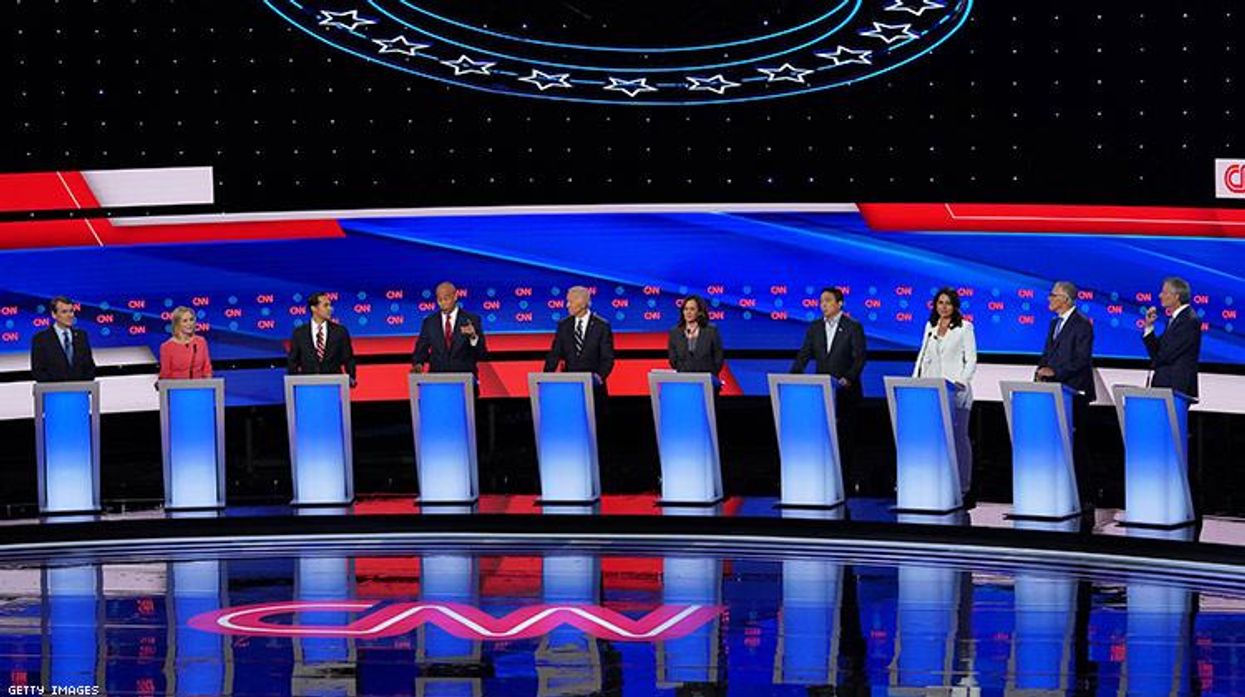Politics
Gillibrand, Inslee Make Only Mentions of LGBTQ Rights at Debate

The New York senator raised her record fighting to repeal anti-LGBTQ military policies. And the Washington governor promised to be an ally.
August 01 2019 9:09 AM EST
By continuing to use our site, you agree to our Privacy Policy and Terms of Use.

The New York senator raised her record fighting to repeal anti-LGBTQ military policies. And the Washington governor promised to be an ally.
New York Sen. Kirsten Gillibrand touted her fight to repeal "Don't Ask, Don't Tell," while Washington Gov. Jay Inslee asserted a responsibility of allies to defend the rights of LGBTQ individuals.
In the second night of the Democratic presidential debate hosted by CNN this year, moderators again did little to press candidates on issues facing LGBTQ Americans. That did not go unnoticed by many advocates in the country.
"Last night: no LGBTQ questions. Tonight: no LGBTQ questions. This White House: the worst for LGBTQ people in modern history," noted Human Rights Campaign spokesperson Charlotte Clymer on Twitter.
But some candidates on stage Wednesday night made sure to raise the needs of the otherwise ignored demographic.
Gillibrand included the fight for LGBTQ rights in her opening statement, where she spoke both of a family history fighting for queer rights and her own record doing the same in Washington, D.C.
"My mother taught me nothing's impossible. She was one of only three women in her law school class and worked with gay couples for basic rights," she said.
Gillibrand's mother, Polly Noonan Rutnik, was an attorney in New York for many years.
The New York senator made sure to stress her own record on equality while on the debate stage, and used that to stress her tenaciousness as a lawmaker.
"If you want to get something done, just tell me it's impossible. As a freshman senator I was told you couldn't repeal 'Don't Ask, Don't Tell.' Even members of my own party told me it wasn't convenient," she said. "When are civil rights ever convenient? We stood up to the Pentagon and we got it done. Not impossible."
Inslee raised the fight for equality during a conversation about the bigotry issued frequently from Republican President Donald Trump.
CNN moderator Don Lemon, himself an out black man, questioned how Democrats should address the matter.
"Why are you the best candidate to heal the racial divide that exists in this country today, which has been stoked by the president's racist rhetoric?" Lemon asked.
The question and most candidate responses dealt chiefly with racial inequality. But Inslee, one of many straight white men on the debate stage, said it's imperative political leaders defend all marginalized communities.
"I approach this question with humility because I have not experienced what many Americans have," he said.
"I've never been a black teenager pulled over in a white neighborhood. I've never been a woman talked over in a meeting. I've never been an LGBTQ member subject to a slur," he said.
"And so I have believed I have an added responsibility, a double responsibility, to deal with racial disparity."
Charlie Kirk DID say stoning gay people was the 'perfect law' — and these other heinous quotes